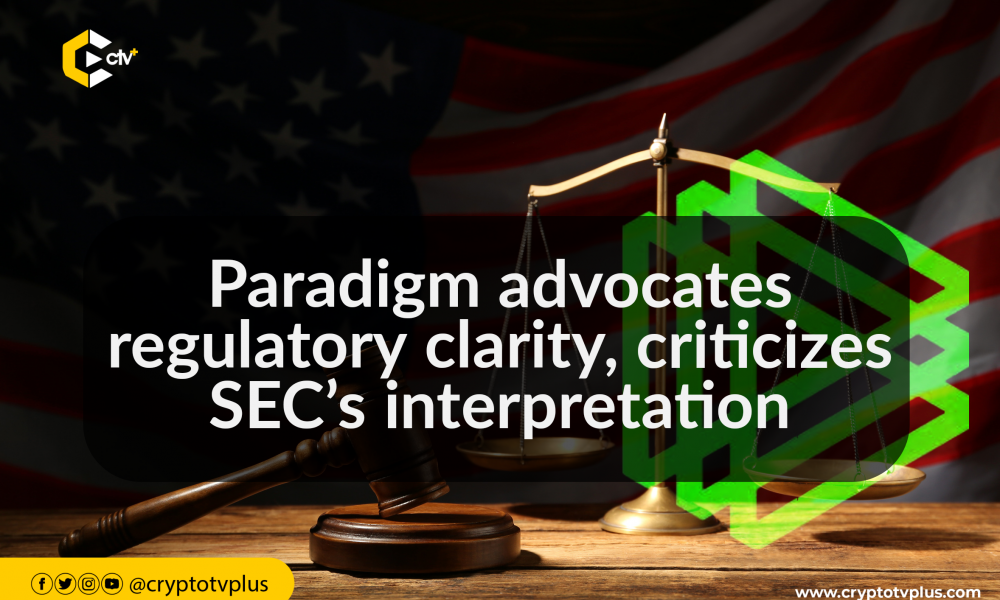
Paradigm, a venture capital firm, has expressed its opposition to the regulatory standards imposed by the U.S. Securities and Exchange Commission (SEC) on cryptocurrency exchanges. In a statement, Paradigm clarified that its stance does not aim to defend any specific crypto exchanges currently facing SEC lawsuits. However, it did submit an amicus brief challenging the SEC’s lawsuit against Binance.
Paradigm drew attention to remarks made by SEC Chair Gary Gensler during Congressional testimony, where he acknowledged that the SEC lacks the proper authority to regulate secondary markets dealing with cryptocurrencies. Gensler specifically stated that “the exchanges trading in these crypto-assets do not have a regulatory framework.”
To solidify its position, Paradigm emphasized that the sale of a crypto asset on a secondary market does not guarantee future value delivery, thereby not meeting the requirements of an investment contract. Paradigm also stated that an “investment contract” does not necessarily require a traditional contract, and thus the SEC cannot create one through legal maneuvers.
Additionally, Paradigm presented two supporting arguments. Firstly, the firm claimed that mere asset appreciation should not categorize a sale as an investment contract. Secondly, it argued that the sale of an asset does not inherently establish a common enterprise, which is a key element for an investment contract.
Furthermore, Paradigm asserted that the SEC should not interpret and regulate crypto assets without clear authorization from Congress. The firm criticized the use of a nearly 80-year-old interpretation (the Howey Test) of a 90-year-old statute (the Securities Act) as insufficient for providing clarity in the fast-evolving crypto industry.
In response to the SEC’s case against Binance, the issuer of the USDC stablecoin, Circle, asserted that stablecoins should not be classified as securities. Circle argued that users do not anticipate profits from holding stablecoins, indicating that they lack the characteristics of an investment contract.
However, Binance and its CEO Changpeng Zhao countered the SEC’s allegations, claiming that the regulator had exceeded its mandate. They called for the dismissal of the lawsuit, arguing that the SEC had overstepped its boundaries.
The ongoing legal battles between the SEC and various crypto exchanges are shedding light on the challenges of regulating the rapidly evolving cryptocurrency market. As the industry continues to grow and develop, it remains to be seen how regulatory frameworks will adapt to the unique characteristics of digital currencies and exchanges.






